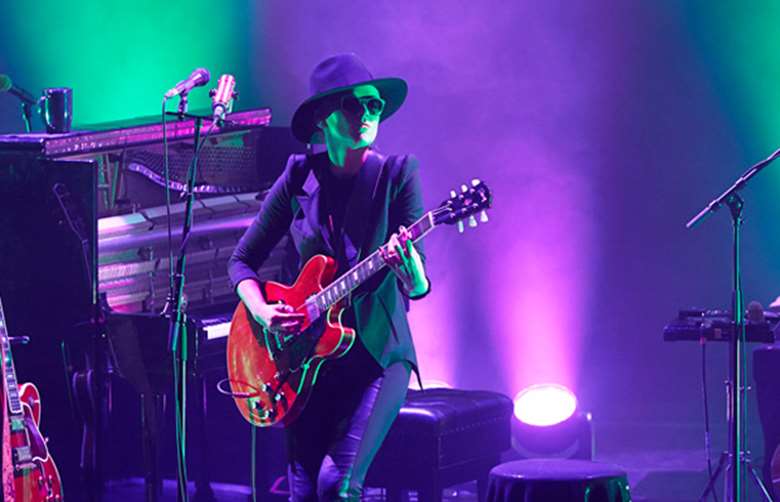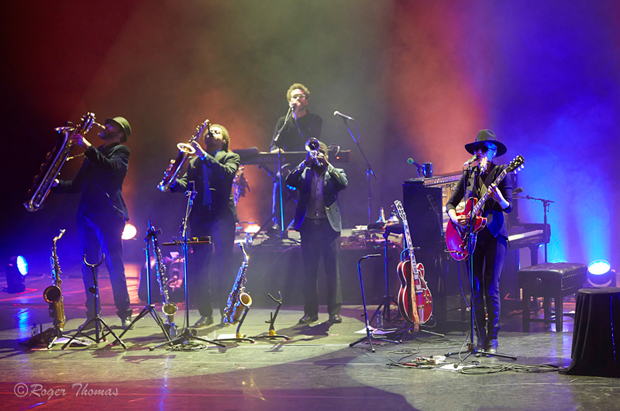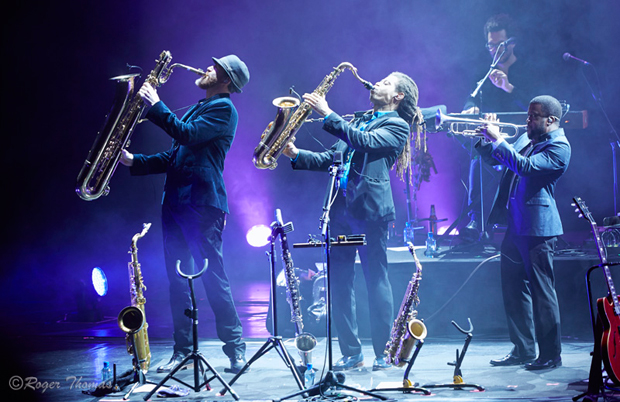Melody Gardot cool strutting and soulful at Southbank
Thursday, November 19, 2015
American singer-songwriter Melody Gardot’s new album, Currency of Man, released earlier this year, has been doing very well.

She last played in London in the more intimate surroundings of the Pizza Express Jazz Club, so I was intrigued to see how her show scaled up to a bigger venue. If anything, this was a better setting for her more recent bluesy, guitar-led material spiced with a gutsy horn section (featuring Erwin Hall and Shareef Clayton), and she certainly had more space to strut around the stage at the South Bank, clearly quite comfortable engaging a large audience in intimate conversation. At one point Gardot asked who was in love, and even encouraged those on the back rows of the upper circle to enjoy a kiss and a cuddle.

But the set was far from a cosy, rosy romantic love-in: the songs are sharp and speak to some of our deepest societal problems, something music has always needed to delve into, but never more than now. Gardot was in Paris herself last Friday – her career has made her a frequent visitor to the French capital, both to perform and record – yet she seemed at a loss as to how to make sense of it on a personal level, referring us instead to her latest single, ‘Preacherman’, a powerful retelling of the story of Emmett Till, a boy murdered during the 1950s in the deep south, that event that galvanized the emergent civil rights movement. Drawing her audience into this haunting song, she invited us all to sing with her, and the Festival Hall achieved a feeling of a mass cathartic lamentation as our voices combined. Shaking her blonde curls free from her fedora, she then brought her drummer Chuck Staab to the front to do a gentle trio number together with guitarist Mitchell Long, entitled ‘Morning Sun’. For her tribute instrumental ‘Mingus March’, she played the piano, as well as for ‘Bad News’, a song that lets Gardot work a Tom Waits-style late night bawdy ballad.

Despite exuding a sexy confidence and a chatty personable stage presence, in her dark glasses Gardot manages to stay a little remote and removed throughout, adding a rare spiritual edge to her allure. Her voice, like her guitar playing, is subtle, restrained, veering towards sublime fragility one moment and capturing a dirty drawl at others. Lighter on the more soul-searching stuff than I would have liked, the set was lively and memorable, in particular their encore, a funky take on ‘It Gonna Come’, with the horn section getting most of the audience up dancing as Gardot let things fly a little before introducing them by name one by one and they all left the stage.
– Sarah Chaplin